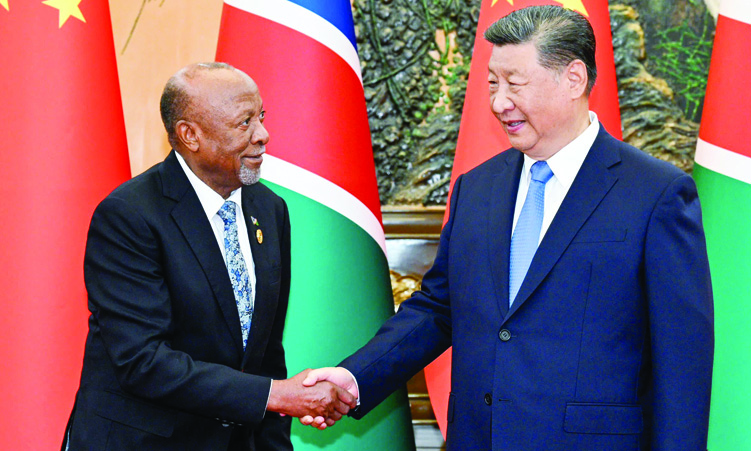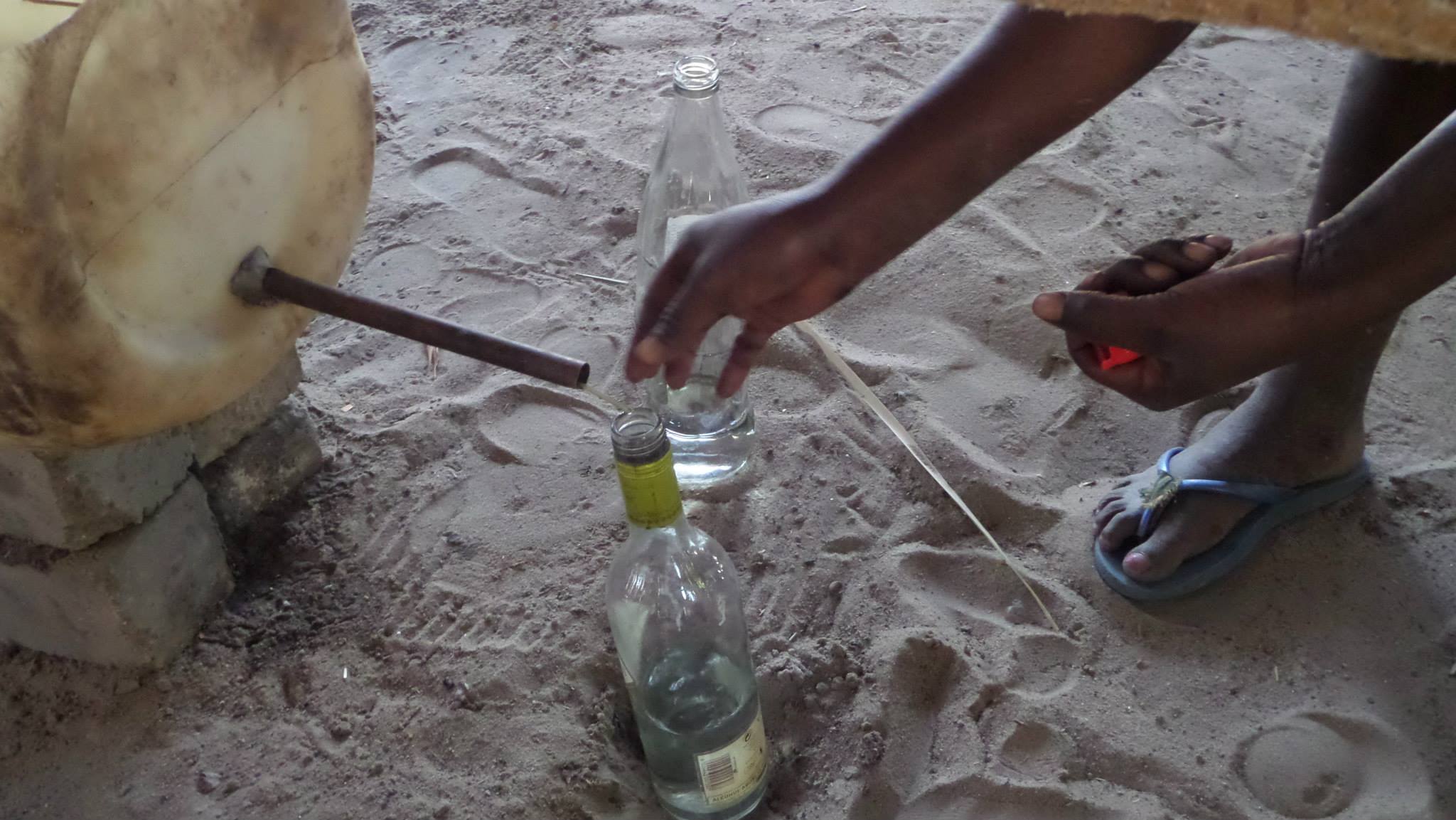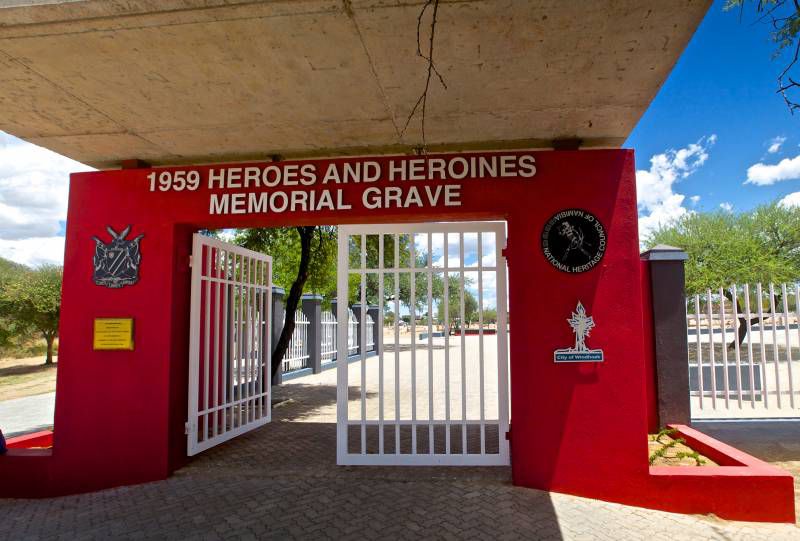China will fund Namibia’s police housing project with N$1 billion.
This was announced by the Namibian Presidency in a press statement issued yesterday.
President Nangolo Mbumba travelled to China last week to meet with Chinese president Xi Jinping and to attend the ninth Forum on China-Africa Cooperation in Beijing.
Press secretary Alfredo Hengari said the grant is meant to aid the government’s efforts to house police officers.
“A technical team would be sent to Namibia to undertake feasibility studies for the project,” he said.
China gave an additional N$500 million grant for future projects.
“. . . to augment the efforts of the Namibian government towards drought relief,” the statement reads.
Namibia made it clear it wants to collaborate with China in developing green hydrogen, solar manufacturing, hydro, wind and nuclear energy.
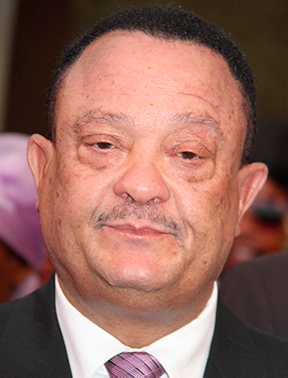
“President Mbumba said that Namibia wanted to scale up infrastructure, including a desalination plant and nuclear infrastructure, to add value to uranium for the peaceful development of nuclear energy and other energy sources,” the statement reads.
China will also assist Namibia on national security through smart city initiatives.
Ambassador Pius Dunaiski yesterday said if the Chinese are showing off their billions, America would follow suit.
“I think we must just get to the point where we as Africans say enough is enough. We want to be seen as independent . . ,” he said.
“And you have to look at the fact that it’s also an election year,” he said.
“China has mastered soft power diplomacy,” he said.
Dunaiski said the United States (US) feels threatened by the rise of China.
“China is eclipsing the US as a world power,” he said.
He said the current geopolitical conditions are signs of “cold war 2.0”.
“Our non-alliance will not push away assistance, neither will we also completely fall into the hands of the Chinese. It is written in the Constitution and it will save us,” he said.
The ambassador does not take kindly to African countries being summoned by world leaders.
“The summoning is derogatory,” he said.
Political analyst Ndumba Kamwanyah yesterday said the partnership positions Namibia as a key player in China’s engagement in southern Africa, balancing its relations with both Western and Eastern powers.
“The focus on infrastructure, energy and technology reflects China’s interest in solidifying its influence through economic diplomacy in resource-rich African nations like Namibia,” he said
Kamwanyah said economically, the focus on investments in sectors like renewable energy, mining and digital technologies showcases Namibia’s efforts to capitalise on its natural resources and align with China’s expertise in industrialisation.
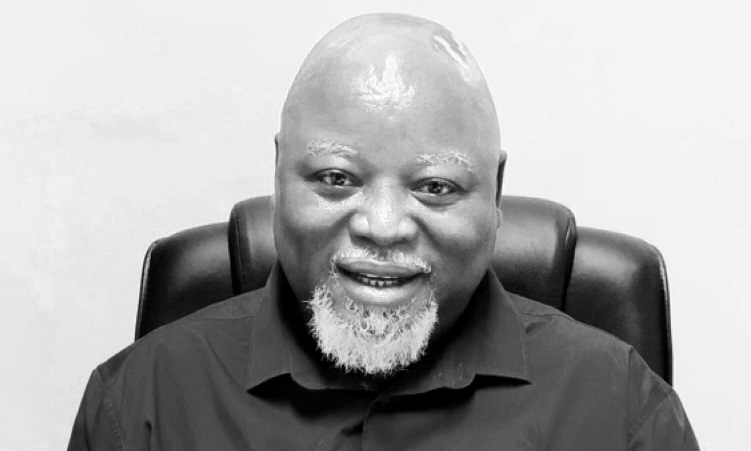
“China’s investment in Namibia’s mining and renewable energy sectors, such as green hydrogen, solar and nuclear energy, could provide critical infrastructure and technology to enhance Namibia’s economic self-reliance,” he said.
However, he added, the global competition for resources like uranium and green hydrogen means Namibia would need to carefully navigate international trade policies and ensure that Chinese investments are mutually beneficial. International relations analyst Marius Kudumo yesterday said until Africa speaks with one voice and as a respected player in global affairs as envisioned in Agenda 2063, the strategic interests of China and other global players will reign supreme.
“Simply put, China is benefiting more from unequal economic power relations compared to what Namibia is benefiting. Namibia needs to rethink her relations with the rest of the world . . ,” Kudumo said.
At diplomatic level and in terms of global positioning, the analyst said the summit has symbolic value for Africa and concrete outcomes for China.
“Africa must begin to interact with the rest of the world on her own terms and in Africa, and should not always be summoned to other capitals. Otherwise Africa is continuing with colonial power relations,” he said.
Stay informed with The Namibian – your source for credible journalism. Get in-depth reporting and opinions for
only N$85 a month. Invest in journalism, invest in democracy –
Subscribe Now!


